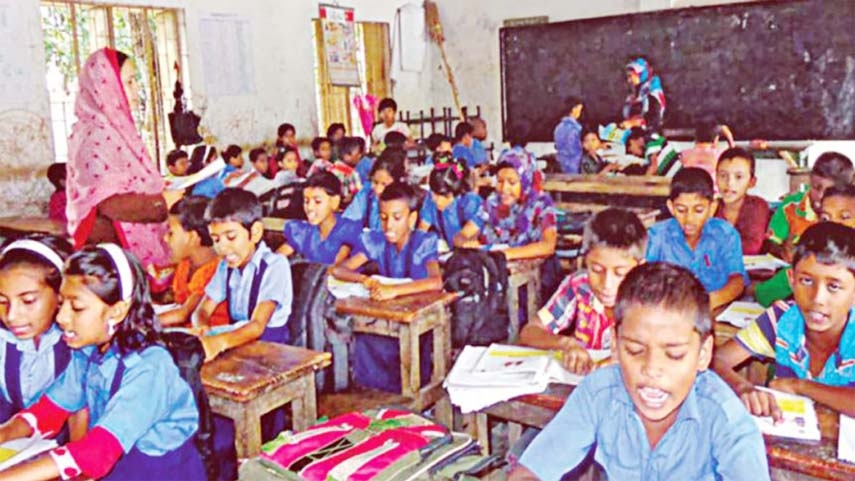
News Desk :
Only 34 per cent of third graders in Bangladesh have foundational reading skills, and only 18 per cent have foundational numeracy skills, according to a new report of UNICEF. Children from disadvantaged backgrounds are even worse off, the UN organisation said in its report released on Wednesday.
In Bangladesh, one of the countries featured in the report, children endured one of the longest school closures in the world due to Covid-19, missing almost 18 months of in-person education.
“Even before the pandemic, children in Bangladesh faced education hurdles. Children in Bangladesh need full access to flexible and remedial learning to help make up for the time lost,” said Sheldon Yett, Unicef Representative to Bangladesh.
“A failure to take action now puts the well-being of children and their families at risk for generations to come,” he also said.
School closures in Bangladesh from March 2020 to September 2021, and again in February 2022, have not only disrupted the education of around 37 million children.
They have also exacerbated worrying gaps in basic literacy and numeracy skills which existed before the pandemic began, the report said.
As the Covid-19 pandemic enters its third year, 23 countries – home to nearly 405 million schoolchildren – are yet to fully open schools, with many schoolchildren at risk of dropping out, according to the UNICEF report.
It points out that 147 million children missed more than half of their in-person schooling over the past 2 years.
This amounts to 2 trillion hours of lost in-person learning globally.
In addition to data on learning loss, the report points to emerging evidence that shows many children did not return to school when their classrooms reopened.

